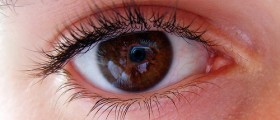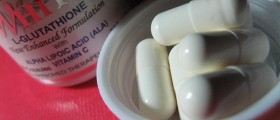
Introduction
Lutein belongs to the family of carotenoids, organic pigments. Lutein is concentrated mostly in leafy green vegetables such as spinach. It is also found in some other fruits and vegetables, lettuce and peas, carrots and squash. Corn, kale and egg yolks have high amounts of lutein too. The body does not produce lutein so the consumtion of food or some nutritional products full of lutein can compensate for this lack of lutein in the body.
Research studies have revealed that the adequate amount of lutein that a body needs ranges from six to 20 miligrams a day. So as to feel the effects of lutein, lutein needs to be taken every day depending on the age and how much the body is deficient in lutein. In treating deficiencies, various supplements are available which recover the needed level of lutein. When buying lutein supplements people should avoid buying ones with additives or synthetic substances or colors. The best way to regularly intake lutein is to consume fruit and vegetables rich in lutein.
Benefits
Lutein is essential for good vision because it protects the eyes from harmful outside influences. It makes the eyes safe from the ultraviolet and harmful sun rays. Therefore it enhances visual perception. Food and nutrition rich in lutein are known to prevent and possibly treat many eyesight problems occuring over the ages macular deterioration and cataracts. It is no wonder then that lutein is sometimes referred to as "natural sunglasses."
Since lutein is found in the mucula, with a role in central vision, taking lutein directly affects mucula and thus slows down the development of mucular deterioration in the old ages. If lutein is taken for eyesight it should be combined with minerals, zinc and zeaxanthin.
Due to its antioxidant quality, lutein serves as a powerful means in the protection against free-radicals which exert a lot of damage on the essential cells.
Thus, free radicals are liable for numerous diseases, cancers, especially colon cancer. Free-radicals can deteriorate already acquired health conditions, such as diabetes cancer or some chronic diseases. Lutein affects LDL cholesterol and regulates its levels while at the same time assists in clearing the arteries. This role enables the lutein to prevent thickening in the blood and as a result there is a decreased risk of getting a cardiovascular disease.
In addition, as a part of many vitamins, lutein has the wide use in cosmetic products. When applied to the skin it makes the skin healthy-looking and more natural.

















Your thoughts on this
Loading...